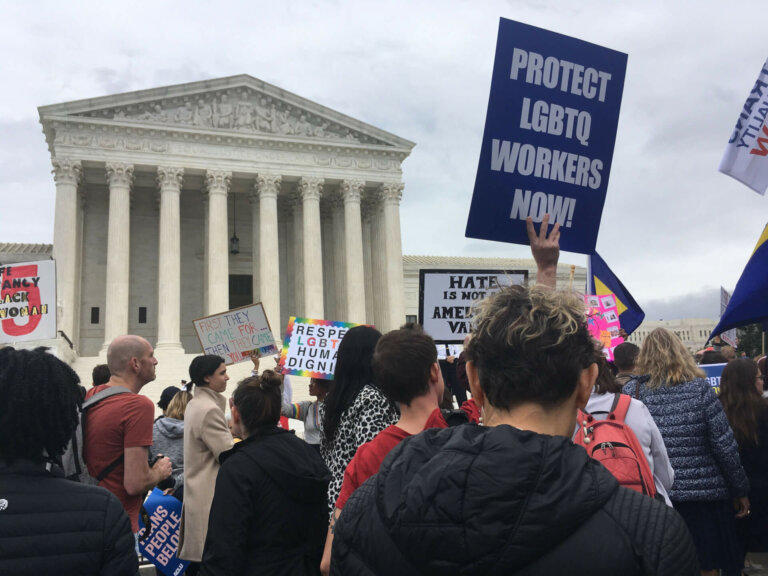
Caption
Pro-LGBT demonstrators rally outside the Supreme Court in 2019. Today's high court decision favored a Catholic agency seeking not to unite children with gay foster parents, but it did not radically shift the battlefield in the clash between LGBTQ rights and religious liberty.
Credit: Allison Stevens/Georgia Recorder
